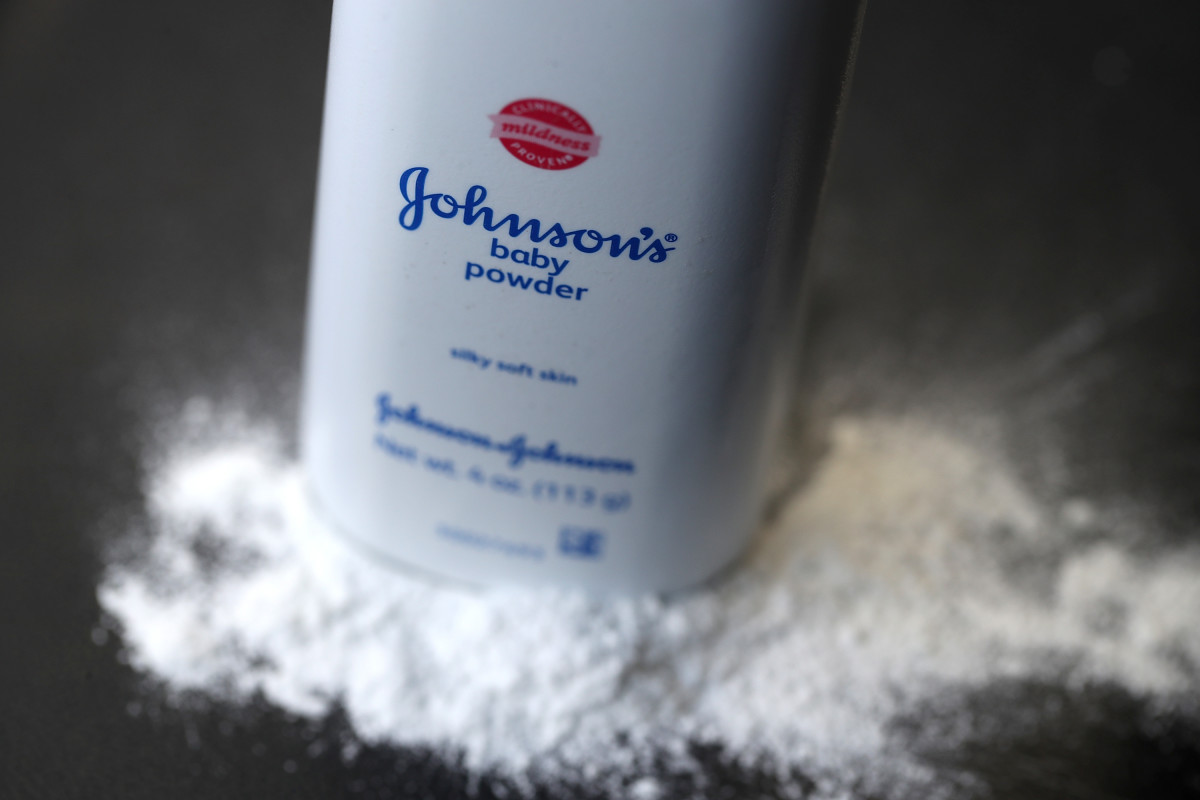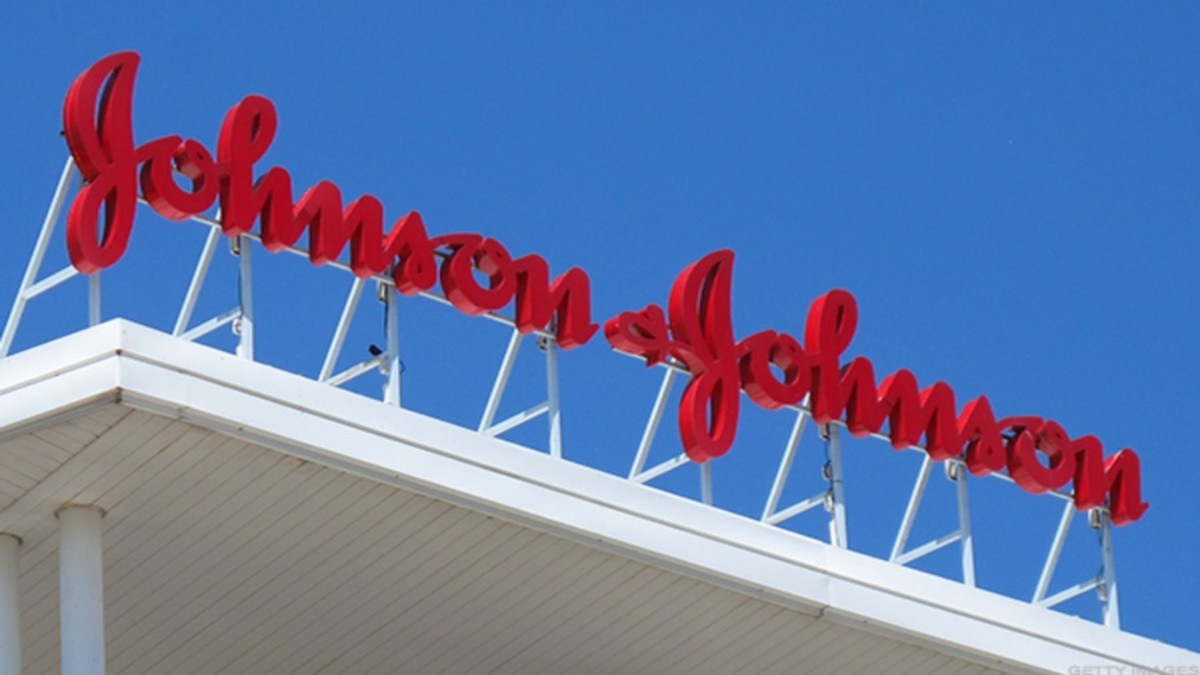
In 1894, Johnson & Johnson (JNJ) began selling talc as Johnson's Baby Powder.
"The original square container was designed with parents in mind," the world’s largest maker of healthcare products said on its website. "Its shape prevented the package from rolling away while a mother had her hands full."
Related: UnitedHealth stock surges after earnings, Medicare Advantage cost update
But the company's talc products became a liability, and Johnson & Johnson has been under fire for a decade for a myriad of cases alleging that its talc-based baby powder has caused cancer.
Most of these claims are over women who got ovarian cancer, but others involved mesothelioma, a cancer tied to asbestos exposure.
Former baby powder users contend that J&J executives knew since the early 1970s that the product contained trace amounts of asbestos.
Since 2014 at least a dozen juries have awarded a total of more than $6.5 billion in damages to consumers blaming the powders for their cancers, according to data compiled by Bloomberg News.
Some of those awards later were reduced or thrown out on appeal.
J&J has said its talc products are safe and do not cause cancer, but the company pulled its talc-based powders from the U.S. market in 2020 and said last year that it would pull talcum powder worldwide by the end of 2023.
In January JNJ agreed to pay about $700 million for settling claims by over 40 U.S. states that it wrongfully marketed its talc-based baby powder.

Talc litigation an 'overhang', analyst says
The company has twice tried and been rejected by the New Jersey courts to use bankruptcy to build a trust to pay its victims through a $9 billion settlement.
On April 16, Johnson & Johnson reported first-quarter earnings of $2.71 per share, beating FactSet's consensus of $2.66. Revenue totaled $21.38 billion, compared with FactSet's call for $21.40 billion.
The company earned $2.68 per share a year ago on $24.74 billion in revenue.
The company also narrowed its full-year and expects sales of $88 billion to $88.4 billion. That compares with a previous forecast of $87.8 billion to $88.6 billion.
JNJ expects adjusted earnings of $10.57 to $10.72 per share, compared to a previous guidance of $10.55 to $10.75 per share.
The talc topic came up during the company's earnings call with analysts with Joaquin Duato, chairman and CEO, saying, “We continue to make progress on achieving responsible, final, and comprehensive resolution of the talc litigation.”
“Overall, I'm proud of the performance in the quarter, both in terms of the solid financial, but also the numerous pipeline advancements,” he said.
HSBC upgraded Johnson & Johnson to buy from hold with a price target of $170, up from $169.
The shares have retreated to three-year lows despite unchanged fundamentals and well-known headwinds, said the firm's analyst, who sees "asymmetric risk and attractive upside" as well as diversity that limits material operational downside for JNJ.
While talc litigation is an overhang, the analyst added that a resolution would be positive.
In reviewing the results, TheStreet Pro’s Bruce Kamich said Johnson & Johnson’s revenue growth numbers slowed across all categories. He added that the pharma giant also set guidance below consensus as its medical technology, or MedTech, business underperformed.
Slow cancer drug sales
“The charts and indicators of JNJ suggest we could see further declines in the weeks ahead,” he said. “Avoid the long side of JNJ.”
Earlier this month, Johnson & Johnson agreed to buy Shockwave Medical (SWAV) in a deal valued at $13.1 billion including debt, as the company builds its cardiac-health-centric medical devices business.
More Wall Street Analysts:
- Analyst unveils new Nike price target ahead of big summer for sports
- Analysts weigh in on Google-parent Alphabet’s stock after cloud event
- Analysts revamp Disney stock price target after proxy fight
On April 17, Bank of America analyst Geoff Meacham lowered the firm's price target on JNJ to $170 from $180, while keeping a neutral rating on the shares.
Shares traded down despite a "solid" first-quarter and unchanged reported guidance midpoint. The analyst told investors that Meacham suspects this was due to disappointing sales for Carvykti, a treatment for multiple myeloma, an incurable blood cancer, and the vision business.
Johnson & Johnson finished up slightly to $145.74 on April 18.
“Indeed, investors were caught off guard by the lack of sequential growth for Carvykti, which management largely attributed to ‘phasing and timing of purchase’ despite prior quarter's commentary that a sequential growth is expected," the analyst wrote.
"Based on our conversations with investors, it's likely that Carvykti may be facing competition from bispecifics as well as other CAR-T therapies," he said, referring to artificial protein used to for cancer treatment.
Jessica Moore, vice president of investor relations, told analysts that Carvykti's sales reached $157 million, compared with $72 million in the year-ago quarter, “driven by continued capacity expansion, manufacturing efficiencies, and strong demand.”
“While sequential growth was roughly flat due to phasing, we continue to anticipate quarter-over-quarter growth, with acceleration in the back half of the year," she said.
Sales of its blockbuster psoriasis drug Stelara also came in lower than expected.
Meacham said that he believes commercial execution from key growth franchises remains the focus and that better-than-expected quarterly performance and pipeline readouts can improve investor sentiment.
The 2024 guidance looks "beatable," the analyst said but he reduced his price target on a lower Carvykti sales outlook.
Related: Veteran fund manager picks favorite stocks for 2024







